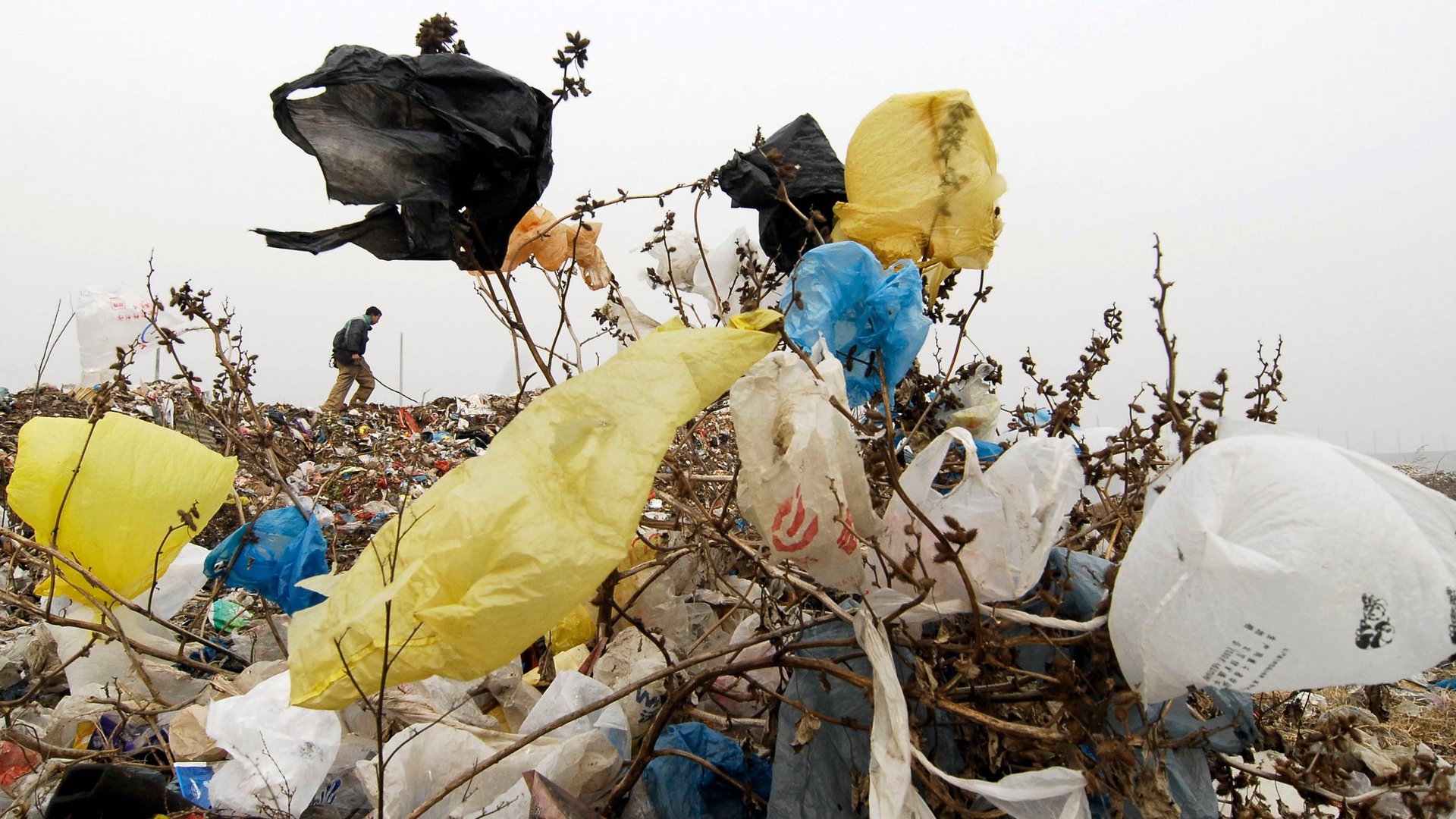The plastic shopping bag faces its downfall in England, but the alternatives aren’t always greener
A “nation of shopkeepers“ is, by definition, also a nation of shopping bags. English shoppers used more than seven billion flimsy, single-use plastic sacks in 2012, putting them among Europe’s most enthusiastic users. But the British government wants to see fewer plastic bags clinging to tree branches and swirling across sidewalks, and is introducing a 5 pence ($0.08) fee for plastic bags in England from 2015.


A “nation of shopkeepers“ is, by definition, also a nation of shopping bags. English shoppers used more than seven billion flimsy, single-use plastic sacks in 2012, putting them among Europe’s most enthusiastic users. But the British government wants to see fewer plastic bags clinging to tree branches and swirling across sidewalks, and is introducing a 5 pence ($0.08) fee for plastic bags in England from 2015.
Following similar moves in Scotland, Wales and Northern Ireland, this means that the entire British Isles will soon be hostile territory for the plastic bag. The Republic of Ireland introduced a charge on bags back in 2002—it is currently 22 euro cents ($0.29)—and saw usage quickly plunge by more than 90%.
The cost of cleaning up the ubiquitous bags—which can languish in landfills and cling to coasts for decades, if not centuries—is the main motivation for limiting their use. Before it imposed a fee on bags in 2010, a fifth of Washington DC’s garbage dredged from rivers consisting of plastic sacks. What’s more, the countries that once imported others’ plastic waste for recycling, like China, are now turning it away.
Fewer plastic bags certainly removes a common eyesore, and marine life will be thankful. But from a climate-change perspective, the evidence against the plastic bag—and the case for its replacements—is less clear-cut. According to a report (pdf) from the UK’s environment agency, the toxicity and lifetime carbon footprint of a plastic shopping bag is less than many alternatives, thanks mostly to its lighter weight.
To match the environmental impact of reusing a single plastic bag once (many people reuse plastic shopping bags as garbage bags), a synthetic fabric bag needs to be used 26 times, and a cotton bag more than 300 times, due to the higher environmental burden of manufacturing them. That’s a tough slog for many consumers, who are now inundated with reusable bags that shops give away to market their green thumb. Without a concerted effort to get much more use out of a much smaller number of bags, the payoff from reducing plastic bag use can take a very, very long time.
But then again, demonizing plastic bags helps embattled politicians burnish their green credentials—even if, in the absence of a broader plan, the benefits to the environment aren’t guaranteed.